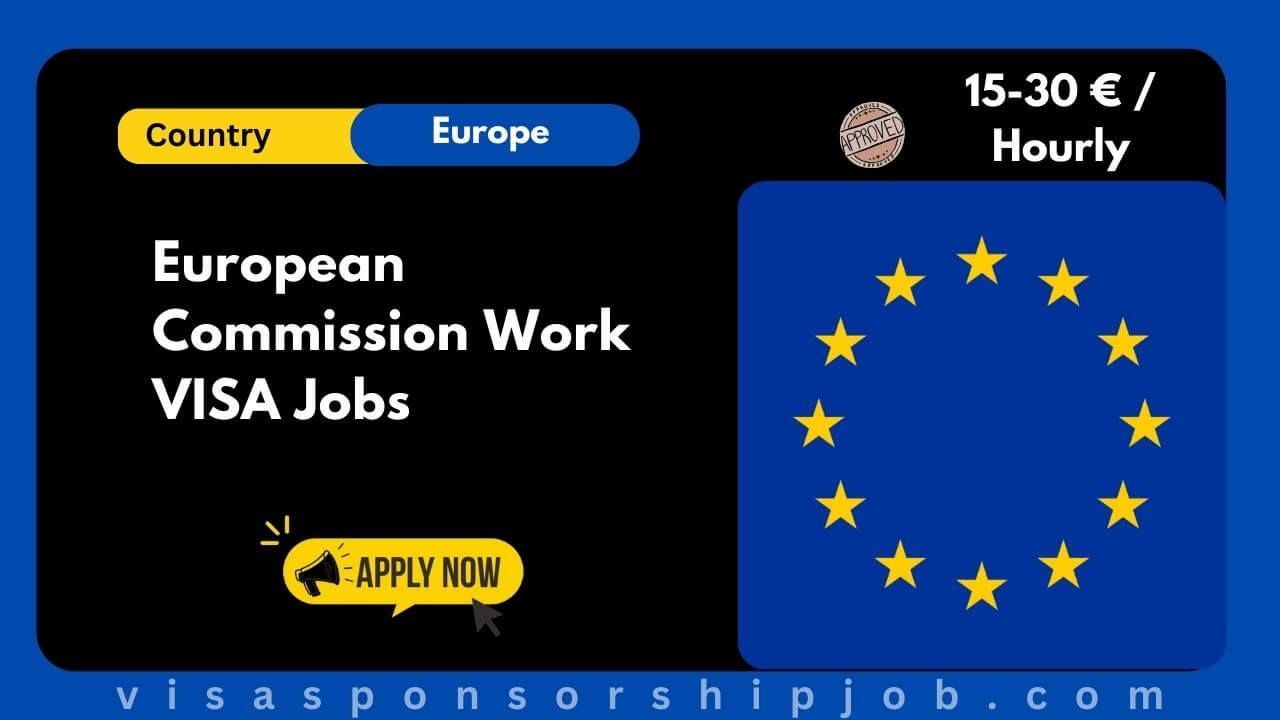Obtaining a job in Europe, particularly one that offers a work visa, can be daunting. However, with the right resources and strategies, such as the European Employment Services (EURES), the process can become more manageable. Whether you’re an EU citizen or a non-EU national, this guide will help you navigate through the necessary steps to secure a job in Europe and ensure you meet visa requirements.
Check Also: Jobs in Europe For Foreigners Visa Sponsorship
Why Use the EUROPA Portal for Job Applications?
What is EUROPA?
EUROPA is the official website of the European Union, offering a wealth of information and services aimed at facilitating the free movement of workers across Europe. The EURES portal connects job seekers with employment opportunities in the EU, EEA (European Economic Area), and Switzerland. By leveraging this platform, you can access thousands of job openings across a wide range of sectors, including healthcare, engineering, IT, and more.
Key Features of EUROPA:
- Job Listings: Access detailed job postings from employers across 27 European countries and beyond, with specific emphasis on skill shortages.
- Living & Working Conditions: Find important information about legal, administrative, and social conditions in various European countries, which can help you adjust more easily once you move.
- Matching Services: EURES offers a matching service that helps align your qualifications and experiences with the needs of employers.
Which Countries Can You Apply to?
The EURES portal posts job listings from the following 27 EU countries, as well as several EEA countries and Switzerland:
EU Member Countries: Austria, Belgium, Bulgaria, Croatia, Cyprus, Czech Republic, Denmark, Estonia, Finland, France, Germany, Greece, Hungary, Ireland, Italy, Latvia, Lithuania, Luxembourg, Malta, Netherlands, Poland, Portugal, Romania, Slovakia, Slovenia, Spain, Sweden.
EEA and Switzerland: Iceland, Liechtenstein, Norway, and Switzerland.
Each country has its own set of employment laws, so it’s crucial to research the specific conditions of your target location.
High-Demand Job Sectors in 2026:
EURES highlights jobs in sectors facing skill shortages across Europe, which is especially relevant for non-EU citizens seeking work visas. These include, but are not limited to:
- Healthcare: Doctors, nurses, and medical technicians.
- Engineering: Civil, mechanical, and electrical engineers.
- Information Technology: Software developers, IT support specialists, and data scientists.
- Education: Language teachers and academic staff.
- Skilled Trades: Plumbers, electricians, and mechanics.
If you possess the necessary qualifications, the likelihood of securing a job increases significantly in these sectors.
Benefits:
- Competitive Salary & Benefits: Health insurance, pension plans, expatriation allowances, and child allowances.
- Job Security: Positions within the EU Commission provide stability, backed by the reputable and long-standing nature of the European Union.
- International Work Environment: Exposure to a multicultural workforce, helping you build global networks and gain diverse work experience.
- Professional Development: Access to language courses, career advancement programs, and the opportunity to grow within EU institutions.
- Work-Life Balance: EU institutions advocate for flexible working hours, remote work, and generous leave policies.
- Comprehensive Health & Educational Benefits: Employees and their families are covered by excellent health insurance, including dental and vision care, and children can access educational benefits.
- Travel Opportunities: Positions may involve traveling for conferences, meetings, and collaborative projects across Europe.
How to Apply for European Commission Work VISA Jobs:
Applying for a job through the EUROPA portal is a straightforward process, but it’s essential to follow each step carefully to maximize your chances.
Step 1: Search for Jobs
- Visit the EURES Job Mobility Portal: Use the official EURES website to begin your job search.
- Refine Your Search: Utilize filters based on country, job title, and industry. For example, if you’re seeking IT jobs in Germany, narrow your search accordingly.
Step 2: Tailor Your Application
- Create a Europass CV: A Europass CV is a standardized European format that highlights your qualifications in a way that is widely recognized across the EU. You can create one for free on the Europass website.
- Write a Custom Cover Letter: Tailor your cover letter to each job application, ensuring it reflects how your skills align with the job requirements.
Step 3: Submit Your Application
- Submit your application via the EURES portal or directly to the employer, depending on the job posting. Ensure that your application is customized to the specific role.
Work Visa Requirements for Non-EU Citizens:
If you’re a non-EU citizen applying for a job in Europe, you will need a work visa. The type of visa depends on your job sector, skills, and the country you’re applying to.
- EU Blue Card: This is a common work visa for highly skilled professionals. It offers benefits such as mobility between EU countries and a pathway to permanent residency.
- Other Visa Types: Depending on the country, other visas may be available for specific roles or industries. It’s crucial to check visa requirements on the individual country’s embassy website or through the EURES portal.
Ensuring Trustworthy Employers on EURES:
Although the EURES platform vets employers to ensure they are legitimate, it is always a good idea to do your own research.
Tips for Ensuring Legitimacy:
- Research the Company: Look up reviews, news, and any available company background information.
- Verify Contact Details: Check for valid contact information, such as physical addresses and official email addresses.
- Be Cautious of Unrealistic Offers: If a job offer seems too good to be true (e.g., promises of high salaries with minimal qualifications), approach with caution.
- Trust Your Instincts: If something feels off, it’s better to proceed with caution.
Frequently Asked Questions:
What is the EU Commission’s salary?
A commissioner’s basic monthly salary is fixed at 112.5% of the top civil service grade. As of June 2023, this translates to €25,910.19 per month. We pay the president at 138% (€27,436.90 per month), the vice president at 125% (€24,852.26 per month), and the high representative at 130% (€25,846.35 per month).
Who can work for the European Commission?
No, to be eligible, you must be a citizen of one of the Member States of the European Union on the date of the validation of your application form. A valid residence permit is not considered proof of citizenship.
How do you get a job working for the EU?
The European Personnel Selection Office (EPSO) holds ‘open competitions’ to select staff for permanent and non-permanent positions. EPSO’s website is the first port of call for anyone wanting to work for the EU; it explains the selection process and provides advice on how to prepare for competitions.






